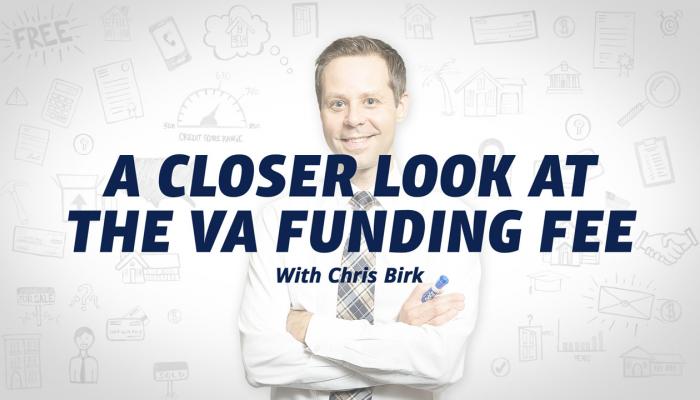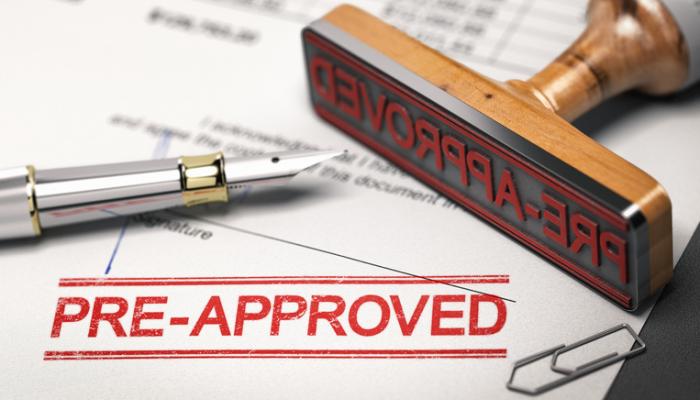It’s easy to get swept up in the excitement of buying a new home and forget to make the important decision to have a home inspection conducted soon after you are under contract.
Home inspections are an instrumental part of the homebuying process, saving you a lot of time and money in the long run.
Remember that a VA home appraisal and a home inspection are not the same thing. Appraisals will not provide you with a detailed look at a property that can help uncover deep-rooted problems and potential pitfalls.
Here are five great reasons to have a home inspection before you buy:
» CALCULATE: Calculate your VA Loan savings
1. Don’t Judge a Home by Its Facade
Especially for those buying newer construction, a home inspection may feel like a waste of money. No matter the age of the home, there can be costly troubles unknown to the average buyer. Problems with wiring, plumbing or structural issues may not be visible during a showing, and you’ll want to get an expert opinion.
Even before you get to the interior, you can do your own preliminary inspection. Simply walk around the home’s exterior and look for any potential problems.
2. Save Money
Home inspection costs vary, but a good rule of thumb would be to expect to pay from $300 to $500, depending on the size and age of the home. While that may seem like a lot of money, think of it this way: Those who skip out on a home inspection may realize in a few years that an inspection is much cheaper than rewiring the entire house.
3. Negotiate
One of the advantages of having a home inspection before you buy is the power it might give you to negotiate a lower price. If a home you’re interested in is at the top of your price range, information gathered during the home inspection may give you the bargaining power to talk down the price. You can also insert language into a purchase contract allowing you to back out of an agreement if the inspection turns up problems.
4. Seller’s Repairs
Not only can you negotiate a lower price, many buyers include clauses in their contract requiring the seller to make the repairs necessary before any money is exchanged. If the seller is unwilling to complete the repairs, estimate the cost and ask them to take that amount off the total. Solid facts about the quality and condition of the home can give you valuable bargaining power.
Remember that a seller’s repairs cannot be included in seller concessions. VA guidelines allow the value of seller concessions to equal up to 4 percent of the selling price, but that 4 percent comes in addition to any negotiated repairs.
5. Offers You an “Out”
It’s not uncommon for buyers to have contract contingencies in their offer, a home inspection contingency being one of the most prevalent. This allows buyers to back out of an offer on a home if anything unexpected comes up during the home inspection.
For example, let’s say there’s significant work to be done on the electric wiring of the home. Some buyers would be okay with working through those issues, while others would prefer to walk away. Contract contingencies protect you from ending up with a property that needs a lot of work.
6. You May Need One for Insurance
It’s common for home insurance companies to require inspections to make sure certain issues are not present.
7. Know What You’re Buying
In the end, the most important reason to have a home inspection before you close is to really know what you’re buying. Research your potential home like you would any other major purchase. The more you know, the fewer surprises there will be down the road. Home inspectors can help you make a decision based on your current budget, as well as your future time and money investment.
Answer a few questions below to speak with a specialist about what your military service has earned you.
Know What You’re Buying
In the end the most important reason to have a home inspection before you buy is to really know what you’re buying. Research your potential home like you would any other major purchase. The more you know, the fewer surprises there will be down the road. Home inspectors can help you make a decision based on your current budget as well as your future time and money investment.
Your home is your biggest investment. Get connected with an experienced lending team to guide you through the homebuying process.
Related Posts
-
 2024 VA Funding Fee: Complete Explainer with Charts and ExemptionsThe VA funding fee is a governmental fee required for many VA borrowers. However, some Veterans are exempt, and the fee varies by VA loan usage and other factors. Here we explore the ins and outs of the VA funding fee, current charts, who's exempt and a handful of unique scenarios.
2024 VA Funding Fee: Complete Explainer with Charts and ExemptionsThe VA funding fee is a governmental fee required for many VA borrowers. However, some Veterans are exempt, and the fee varies by VA loan usage and other factors. Here we explore the ins and outs of the VA funding fee, current charts, who's exempt and a handful of unique scenarios. -
 Can Your Mortgage Be Denied After Preapproval?It is possible for you to get denied for a home loan after being preapproved. Find out why this may happen and what you can do to prevent it.
Can Your Mortgage Be Denied After Preapproval?It is possible for you to get denied for a home loan after being preapproved. Find out why this may happen and what you can do to prevent it.


